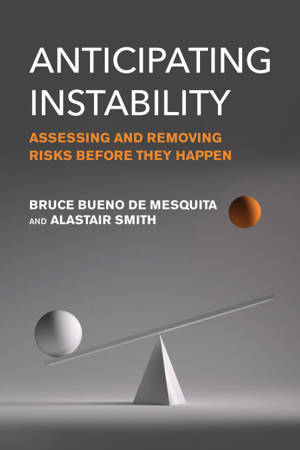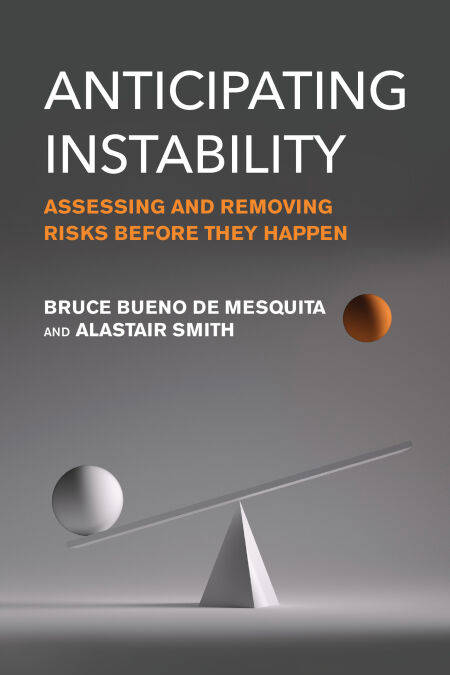
- Afhalen na 1 uur in een winkel met voorraad
- Gratis thuislevering in België vanaf € 30
- Ruim aanbod met 7 miljoen producten
- Afhalen na 1 uur in een winkel met voorraad
- Gratis thuislevering in België vanaf € 30
- Ruim aanbod met 7 miljoen producten
Zoeken
Anticipating Instability E-BOOK
Assessing and Removing Risks Before They Happen
Bruce Bueno De Mesquita, Alastair Smith
E-book | Engels
€ 73,92
+ 73 punten
Omschrijving
A theory of politics that looks at what did not happen—or non-events—to explain policy change, economic development, democratization, and “autocratization.”
Anticipating Instability puts forward a general theory of politics that attempts to explain the very many destabilizing political events in history that did not happen. Although most of us do not pay close attention to what did not occur, research shows that fear of non-events does more to redefine how people are governed than does the actual realization of coups and revolutions.
In unraveling the dogs that didn’t bark, Bruce Bueno de Mesquita and Alastair Smith analyze how, when, and why leaders who believe their hold on power is at risk focus their political survival efforts on adjusting their policy choices or shifting their government’s accountability. Such adjustments are the essential factors that determine whether a society becomes freer, more transparent, and prosperous—or more oppressive, corrupt, and impoverished.
The book is unique in that it develops a general theory of politics using game theory reasoning and then tests dozens of hypotheses derived from the theory’s logic using both statistical methods and illustrative case studies.
Anticipating Instability puts forward a general theory of politics that attempts to explain the very many destabilizing political events in history that did not happen. Although most of us do not pay close attention to what did not occur, research shows that fear of non-events does more to redefine how people are governed than does the actual realization of coups and revolutions.
In unraveling the dogs that didn’t bark, Bruce Bueno de Mesquita and Alastair Smith analyze how, when, and why leaders who believe their hold on power is at risk focus their political survival efforts on adjusting their policy choices or shifting their government’s accountability. Such adjustments are the essential factors that determine whether a society becomes freer, more transparent, and prosperous—or more oppressive, corrupt, and impoverished.
The book is unique in that it develops a general theory of politics using game theory reasoning and then tests dozens of hypotheses derived from the theory’s logic using both statistical methods and illustrative case studies.
Specificaties
Betrokkenen
- Auteur(s):
- Uitgeverij:
Inhoud
- Aantal bladzijden:
- 432
- Taal:
- Engels
Eigenschappen
- Productcode (EAN):
- 9780262385466
- Verschijningsdatum:
- 22/12/2025
- Uitvoering:
- E-book
- Beveiligd met:
- Adobe DRM
- Formaat:
- ePub

Alleen bij Standaard Boekhandel
+ 73 punten op je klantenkaart van Standaard Boekhandel
Beoordelingen
We publiceren alleen reviews die voldoen aan de voorwaarden voor reviews. Bekijk onze voorwaarden voor reviews.







